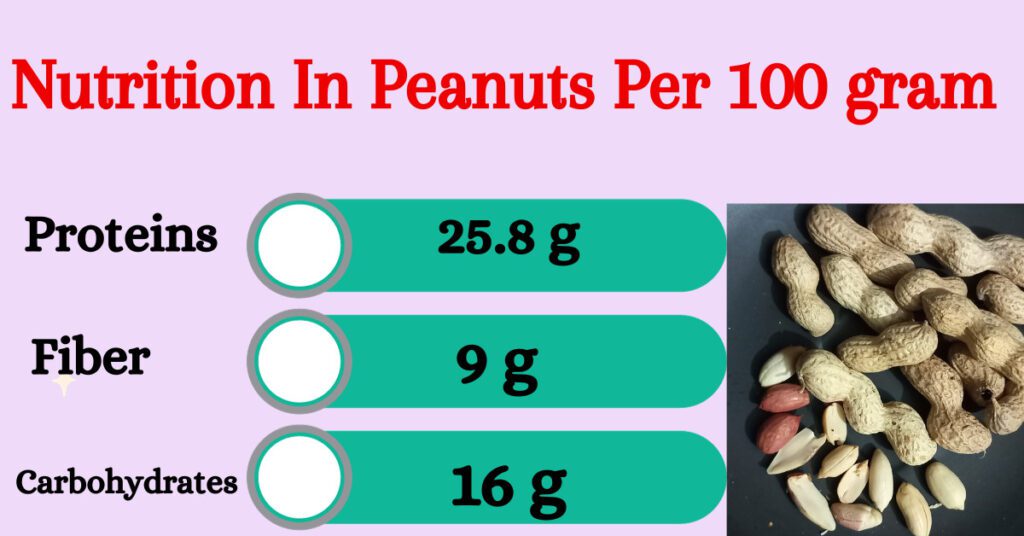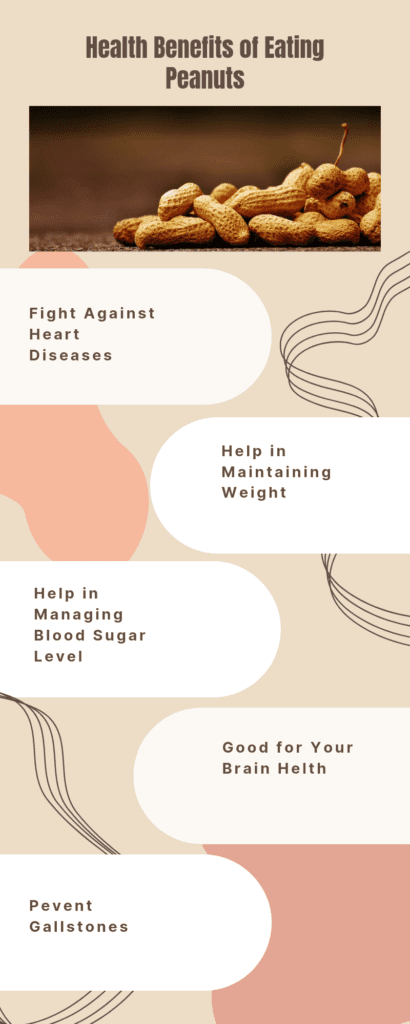Peanuts are casual in our kitchens and quite often used as peanut butter. But for some years, there has been a noticeable shift in their use. Other dry fruits, including cashews, almonds, and nuts, grab the most attention. The change is expressive as the number of peanut butter alternatives on the grocery store’s shelves. It might raise the question, are peanuts good for you or not? The article will briefly explain the health benefits associated with this food. And we will also elaborate on some creative ways to include them in your diet.
How Peanuts Are Good for You? A nutritional perspective
Peanuts have a good mix of all the essential nutrients. They are an ideal source of plant-based vitamins, proteins, minerals, fiber, and fats. Despite being high in calorie count and nutritional value, they have meager carbohydrates.

Alongside healthy fibers, protein, and fats, these nuts have reasonable amounts of potassium, magnesium, Vitamin B, and phosphorus. A 100 gram Serving of peanuts can yield 567 calories.
The detailed nutritional profile is discussed below:
Peanut proteins
Proteins are essential building blocks of life. Peanuts are ideal for consuming plant-based proteins. They offer 25.8g of proteins per 100g.
Anarachin and Conarachin proteins constitute a significant part of peanut proteins. These proteins could induce allergic reactions in some individuals when consumed in excess.
Peanut Fats
Fats give the maximum number of calories per gram. This makes them a crucial part of every diet.
Peanut fats are healthy fats. And primarily include monounsaturated and polyunsaturated fatty acids.
Dietary fiber
Fibers are very effective nutrients against cardiovascular diseases. They are also helpful for a healthy digestive system.
You can get 8-10g of fiber per 100g of peanuts. This is 1/4th of men’s and 1/3rd of women’s recommended daily dietary fibre intake.
Health benefits of peanuts
Here are some health benefits of peanuts.
Help Against Cardiovascular diseases
Peanuts have multiple nutrients like copper, magnesium, unsaturated fat, and antioxidants. These nutrients are beneficial for a healthy heart. The monounsaturated fatty acids reduce cholesterol, and amino acids help keep arteries safe.

Various studies have proved that peanut consumption is directly associated with a lower level of heart disease. A study by the New England Journal Of Medicine reveals that regular nut consumption lowers the chances of heart attack by 29%.
Help in weight loss.
Peanuts are associated mainly with weight maintenance. Even though they have high fat and calorie content, various studies observe that peanuts are very effective against obesity.
There are multiple factors involved that make them effective against weight loss. These factors include:
- They promote the feeling of fullness.
- They can pass the digestive system without getting absorbed if not appropriately chewed.
- High amounts of Monounsaturated fat and antioxidants encourage calorie burning.
Peanuts are effective in managing blood sugar levels.
Peanut is a perfect food for individuals suffering from diabetes. Generally, foods are classified into two groups depending on their glycemic index. Foods with a GI score of 55 or low are low GI foods. And foods with a score above 55 are high GI foods. Peanut’s GI score is 23. This low glycemic index makes them ideal for diabetics.
Peanuts have a low GI score because they have fewer carbohydrates than other nutrients. Fibers slow down the energy release process. And protein took more time to break as compared to simple carbohydrates.
Help in making your brain sharper.
For regular and healthy functioning of the brain, vitamins like niacin, Vitamin B1, and folate are essential. These contain all 30 essential amino acids and are rich in these nutrients. Eventually, making your brain sharp and active.
Peanuts are also rich sources of Resveratrol and polyphenols. Studies have revealed that polyphenols are mood enhancers. And effective against cognitive diseases such as Alzheimer’s.
Peanuts May Help Prevent Gallstones.
Various studies link peanut consumption with lower risks of gallstones. According to a study by Harvard Medical School, people consuming 5 servings of peanuts per week are at low risk of gallstones disease.
The Bottom line
These nutrition-packed nuts are little packages having all vital micro and macronutrients. From weight maintenance to lowering risks of cardiovascular diseases and controlling blood sugar levels, these nuts can induce various health and nutritional benefits if consumed properly.
These little packets contain tremendous amounts of plant-based nutrients essential for healthy growth, repair, and reproduction. The key is to consume them in moderation to yield the maximum benefits.
FAQs
Multiple scientific studies reveal that consuming 1.5 ounces of nuts daily reduces bad cholesterol. Eventually, helping against cardiovascular diseases.
Peanuts provide more protein (7g per serving) than other nuts. They have all 30 essential amino acids. Thus regular peanut eating provides you with all vitamins, proteins, minerals, and much more. But Too Much of everything is not advisable. If you overeat these healthy peanuts, they will sharply increase your weight.
Usually, normal peanut eating has no side effects if you are not vulnerable to any specific allergy associated with them. But excess eating could lead to stomach problems. Diarrhea and constipation could be the result of excessive intake.
Moderation is key. Your peanut consumption patterns should be moderate. The recommended amount of peanut consumption is 42 grams, which is about 16 peanuts or two tablespoons.
Individuals can include them in any diet, whether breakfast, lunch, snacks, or dinner. The only limitations associated with them are when you are allergic to them. Or you are on calorie-deficit diet patterns.
It is important to consider how to eat them. Studies reveal that boiling raw peanuts before consumption could increase their antioxidant level. Boiling is also effective against the potential risk of aflatoxin.
Peanuts have reasonable amounts of antioxidants and Resveratrol. These components reduce skin toxins and delay aging signs like wrinkles and dark spots.
So, after mentioning all these health benefits, we suggest that you should add them to your diet.
